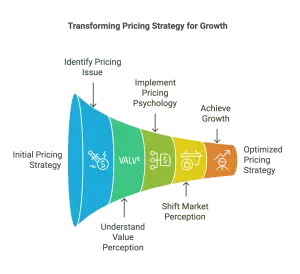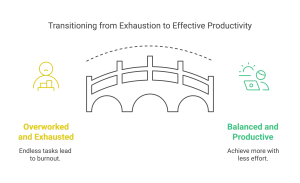Time is a precious resource that is often taken for granted. We all have the same 24 hours in a day, yet some people seem to accomplish more than others. The key to their success lies in effective time management. Time management is the process of organizing and planning how to divide your time between specific tasks, activities, and goals. To help you make the most out of your time, we have compiled a list of time management hacks that can improve your productivity and help you achieve your goals.
Key Takeaways:
- Set realistic goals and deadlines to ensure efficient use of time.
- Identify your peak productivity times to maximize your productivity.
- Take breaks and maintain a balanced lifestyle to avoid burnout and maintain productivity.
Table of contents
- Key Takeaways:
- Understanding Time Management
- Successful People and Their Time Management Hacks and Strategies
- Effective Time Management Strategies
- Utilizing Technology for Time Management
- The Importance of Taking Breaks and Maintaining a Balanced Lifestyle
- Frequently Asked Questions
- 1. How can I effectively manage my time to increase productivity levels?
- 2. How can archived posts help me with time management?
- 3. Are there any alertness products that can help me stay productive throughout the day?
- 4. Is it necessary to plan out my time when managing tasks?
- 5. How can taking an early morning walk help with productivity?
- 6. Can I still add comments and votes to a locked post about time management?
What Are Time Management Hacks?
Time management hacks are strategies and techniques that aim to help individuals manage their time more efficiently. These hacks can vary from simple adjustments to daily habits to adopting new approaches to time management. Time management hacks are designed to help people utilize their time more effectively and achieve better results in their personal and professional lives.
Understanding Time Management
Effective time management is crucial for success in both personal and professional pursuits. It involves prioritizing tasks, setting realistic goals and deadlines, and managing daily schedules. Proper time management can help individuals reduce stress, increase productivity, and achieve a better work-life balance.
The Importance of Managing Time Effectively
Time management is crucial for individuals who want to achieve their goals and be successful. Poor time management can lead to missed deadlines, reduced productivity levels, and increased stress levels. On the other hand, effective time management can result in high-quality work, increased productivity, and a balanced lifestyle.
Common Time Management Challenges
One of the biggest challenges in managing time effectively is the limited time we have in a day. Many people struggle with fitting their long to-do lists into a limited period of time. Distractions, procrastination, and multitasking can also hinder effective time management. However, with the right strategies, these challenges can be overcome.
Successful People and Their Time Management Strategies
Successful people have mastered the art of time management. They utilize various strategies to make the most out of their time and achieve their goals. Examples of these strategies include Benjamin Franklin’s approach to time management, David Allen’s “Getting Things Done” method, and Brian Tracy’s “Eat That Frog” technique.
Effective Time Management Strategies
To improve your time management skills, here are some effective strategies to consider:
- Set Realistic Goals and Deadlines – Setting achievable and realistic goals with specific deadlines can help you stay focused and motivated.
- Identify Your Peak Productivity Times – Everyone has a period of time when they are most productive and focused. Identify your peak performance time and schedule your most critical tasks during that period.
- Prioritize Tasks with the Time Management Matrix – The time management matrix, popularized by Stephen Covey, categorizes tasks based on their level of urgency and importance. This can help you prioritize tasks more efficiently.
- Use Buffer Time and Dedicated Time Blocks – Allow some buffer time between tasks to handle any unexpected tasks or delays. Also, schedule dedicated time blocks for specific tasks to ensure they are completed without interruptions.
- Delegate Tasks and Batch Similar Tasks – Delegate tasks that can be done by others and batch similar tasks together to increase efficiency.
- Focus on One Task at a Time – Multitasking can often decrease productivity. Instead, focus on one task at a time to ensure it is completed to the best of your ability.
Utilizing Technology for Time Management
Technology can be a valuable tool in managing time effectively. Here are some ways to use technology for time management:
- Use Digital Calendars and Productivity Apps – Digital calendars such as Google Calendar and productivity apps like Trello or Asana can help you plan and organize your tasks more efficiently.
- Limit Distractions from Cell Phones – Use features such as “Do Not Disturb” or turning off notifications to reduce distractions from your cell phone.
- Take Advantage of Travel Time – Use the time you spend commuting or traveling to complete simple tasks such as responding to emails or making phone calls.
What Are Time Management Hacks?
Time management hacks are methods and approaches that people utilize to enhance their productivity and efficiently manage their time. These hacks assist individuals in making the most of their time, prioritizing tasks, and accomplishing their objectives.
Some popular time management hacks include:
- Setting achievable goals and deadlines
- Identifying peak productivity periods
- Using time management matrices to prioritize tasks
- Incorporating technology such as digital calendars and productivity apps
- Taking regular breaks for increased focus and energy
These hacks can be customized to suit individual needs and preferences, allowing individuals to optimize their time and achieve greater efficiency in both their personal and professional lives.
Time management is like a puzzle; if you don’t put the pieces in the right order, you’ll never finish.
Understanding Time Management
Real time management is essential for achieving success and reaching our goals. In this section, we will delve into the concept of time management and its significance in our personal and professional lives. We will also explore some common challenges that people face when trying to manage their time efficiently. By understanding the importance of time management and the obstacles that can arise, we can learn valuable skills to improve our time management and productivity.
The Importance of Managing Time Effectively
Managing time effectively is crucial for achieving success in both personal and professional endeavors. Here are some steps to highlight the importance of effective time management:
- Set clear goals and prioritize tasks based on their importance and urgency.
- Create a schedule or calendar to allocate time for each task.
- Avoid multitasking and focus on one task at a time to maximize productivity.
- Identify and eliminate time-wasting activities or distractions.
- Delegate tasks to others when possible, freeing up time for more important responsibilities.
- Take regular breaks to recharge and maintain mental clarity.
- Maintain a healthy work-life balance to avoid burnout and promote overall well-being.
These steps ensure that time is effectively utilized, leading to increased efficiency, reduced stress, and improved overall performance.
Inspired by the importance of time management, renowned entrepreneur Elon Musk famously manages his schedule in five-minute increments to optimize his productivity and accomplish his ambitious goals.
Common Time Management Challenges
Managing time effectively can be a challenge due to various obstacles that individuals may face. Some common time management challenges include:
- Procrastination: Putting off tasks until the last minute, which can lead to increased stress and decreased productivity.
- Interruptions: Constant interruptions from colleagues, phone calls, or emails can disrupt workflow and make it difficult to stay focused.
- Overcommitment: Taking on too many tasks or projects can result in a lack of time to complete them all effectively.
- Poor planning: Failing to plan and prioritize tasks can lead to disorganization and inefficiency.
- Lack of delegation: Not delegating tasks or asking for help when needed can lead to overwhelming workloads and burnout.
By recognizing and addressing these common time management challenges, individuals can develop strategies to overcome them and improve their overall productivity and time management skills.
Successful People and Their Time Management Hacks and Strategies
Time management is a crucial skill for success, and many successful individuals have their own unique strategies for maximizing their productivity. In this section, we will delve into the time management hacks of three well-known figures: Benjamin Franklin, David Allen, and Brian Tracy. Each of them has a different approach to managing their time effectively, and by learning from their methods, we can improve our own time management skills and achieve our goals more efficiently.
Benjamin Franklin’s Approach to Time Management
Benjamin Franklin, one of history’s most influential figures, had a unique approach to managing his time. He famously said, “Lost time is never found again.” Franklin believed in carefully planning every hour of his day and prioritizing tasks. He created a daily schedule, allocating specific time for work, leisure, and personal development. Franklin’s approach emphasized the importance of discipline, efficiency, and self-reflection. By following his example, individuals can improve their productivity and achieve their goals.
One useful tip inspired by Franklin’s approach is to begin each day by outlining your priorities and creating a schedule to stay focused and make the most out of your time.
David Allen’s “Getting Things Done” Method
David Allen’s “Getting Things Done” method is a highly sought-after time management strategy that aims to increase productivity and reduce stress for individuals. This approach focuses on capturing all tasks and ideas into a reliable system, breaking them down into actionable steps, and organizing them based on priority and context.
By implementing Allen’s method, individuals can gain a clear overview of their commitments, make informed decisions about what to prioritize, and effectively execute tasks. This approach has been widely adopted by professionals across various industries and has proven to be effective in enhancing productivity and improving work-life balance.
Interestingly, David Allen developed the “Getting Things Done” method after facing his own struggles with productivity and organization. He was determined to find a solution that would help him manage his tasks and responsibilities more effectively. Through years of experimentation and refinement, he created his renowned method, which has since assisted countless individuals in improving their time management skills and achieving greater success in both their personal and professional lives.
With Brian Tracy’s Eat That Frog technique, you can finally stop procrastinating and start devouring your to-do list one task at a time.
Brian Tracy’s “Eat That Frog” Technique
The “Eat That Frog” technique, popularized by Brian Tracy, is a well-known time management strategy that emphasizes tackling the most challenging task first. To effectively utilize this technique, follow these steps:
- Identify your most important and difficult task.
- Break it down into smaller, more manageable subtasks.
- Set clear, specific goals for each subtask.
- Begin working on the most important subtask and complete it before moving on to the next one.
- Avoid procrastination and distractions by maintaining focus on the task at hand.
Pro-tip: Prioritizing and completing your most difficult task early in the day can greatly increase productivity and provide a sense of accomplishment, setting the tone for a more productive day.
Effective Time Management Strategies
In today’s fast-paced world, effective time management is crucial for success in both personal and professional life. In this section, we will discuss various strategies for managing your time more efficiently. From setting realistic goals and deadlines to utilizing dedicated time blocks, these tips and tricks will help you make the most out of your day. So, let’s dive in and learn how to prioritize tasks, identify peak productivity times, and delegate tasks to increase productivity and reduce stress.
1. Set Realistic Goals and Deadlines
Setting realistic goals and deadlines is crucial for effective time management. Here are steps to help you achieve this:
- Assess your current workload and capabilities.
- Break larger goals into smaller, manageable tasks.
- Set specific and measurable goals that align with your priorities, including the goal of setting realistic deadlines.
- Assign realistic deadlines to each task, considering complexity and available resources.
- Prioritize tasks based on their importance and urgency.
- Regularly review and adjust goals and deadlines as needed.
Remember, it’s important to be flexible and adapt when unforeseen circumstances arise. By setting and meeting realistic goals and deadlines, you’ll improve productivity and reduce stress.
Forget caffeine, just figure out when you’re most productive and schedule your tasks accordingly.
2. Identify Your Peak Productivity Times
Identifying your peak productivity times is crucial for effective time management. Follow these steps to determine when you are most productive and make the most of your time:
- Track your energy levels: Monitor your energy levels throughout the day and take note of when you feel most alert and focused.
- Observe your natural rhythms: Pay attention to when you naturally feel more energized or experience peaks and dips in your concentration.
- Analyze your tasks: Identify the types of tasks that require more mental effort or creativity. Determine if there is a pattern in the times when you perform these tasks best.
- Experiment and adjust: Test different work schedules and allocate your most important or demanding tasks during your peak productivity times.
- Optimize your environment: Create an environment that supports your productivity during your peak times. Minimize distractions and set yourself up for success.
By Identifying Your Peak Productivity Times, you can schedule your most important tasks during those periods and maximize your efficiency and effectiveness.
If you don’t prioritize your time, someone else will do it for you. Use the Time Management Matrix to take back control of your schedule.
3. Prioritize Tasks with the Time Management Matrix
Prioritizing tasks with the time management matrix is a helpful technique to improve productivity and efficiency. Here are the steps to prioritize tasks using the time management matrix:
- Identify all tasks and activities that need to be done.
- Categorize tasks into four quadrants: urgent and important, not urgent but important, urgent but not important, and not urgent and not important.
- Focus on tasks in the urgent and important quadrant first.
- Schedule time for tasks in the not urgent but important quadrant to prevent them from becoming urgent.
- Delegate or eliminate tasks in the urgent but not important quadrant.
- Avoid spending too much time on tasks in the not urgent and not important quadrant.
In the early 1980s, time management expert Stephen Covey popularized the concept of the time management matrix in his book “The 7 Habits of Highly Effective People.”
Don’t waste time, use buffer time and dedicated time blocks to get things done efficiently.
4. Use Buffer Time and Dedicated Time Blocks
Using buffer time and dedicated time blocks can greatly enhance your time management skills. Here are the steps to effectively implement this strategy:
- Allocate buffer time: Set aside short intervals between tasks to account for unexpected delays or interruptions.
- Create dedicated time blocks: Schedule specific periods for focused work without distractions. Use techniques like the Pomodoro Technique, working for 25 minutes and then taking a short break.
- Plan breaks strategically: Incorporate regular breaks into your schedule to rejuvenate and maintain productivity.
- Set realistic deadlines: Assign appropriate time frames to tasks, considering the potential need for buffer time.
- Stay disciplined: Stick to your designated time blocks and avoid any non-urgent distractions during these periods.
History shows that Benjamin Franklin recognized the value of using buffer time and dedicated time blocks in his daily routine. By incorporating this technique, he was able to efficiently manage his time and accomplish numerous tasks throughout his life.
Take the ‘one frog at a time’ approach and delegate or batch similar tasks for maximum efficiency and minimal hopping around.
5. Delegate Tasks and Batch Similar Tasks
Delegating tasks and batching similar tasks are effective time management strategies that can help increase productivity and efficiency. Here are some steps to implement these strategies:
- Identify tasks that can be delegated to others without compromising quality or deadlines.
- Assign these tasks to capable individuals who have the necessary skills and knowledge.
- Provide clear instructions and expectations to ensure successful completion of delegated tasks.
- Regularly communicate and follow up with the assigned individuals to monitor progress and address any issues that may arise.
- Batch similar tasks together to streamline workflow and minimize transitions between different types of tasks.
- Group tasks that require similar resources, tools, or expertise to optimize efficiency and minimize distractions.
- Set aside dedicated time blocks specifically for completing these batches of tasks to maintain focus and avoid interruptions.
6. Focus on One Task at a Time
To effectively manage your time, it is important to focus on one task at a time. Here are steps to help you do so:
- Prioritize tasks: Determine which task is most important and needs immediate attention.
- Eliminate distractions: Minimize interruptions by turning off notifications and creating a dedicated workspace.
- Set a timer: Allocate a specific amount of time for each task to maintain focus and avoid spending too much time on one task.
- Avoid multitasking: Concentrate on one task, complete it, and then move on to the next.
- Practice mindfulness: Stay present and fully engaged in the task at hand to maximize productivity.
Utilizing Technology for Time Management
In today’s fast-paced world, technology has become an integral part of our daily lives. When it comes to time management, utilizing technology can be a game-changer. In this section, we will discuss the various ways in which technology can help us manage our time more efficiently. From digital calendars and productivity apps to limiting distractions from cell phones, we will explore how technology can be a valuable tool for optimizing our time. Additionally, we will also touch upon utilizing travel time effectively with the help of technology.
1. Use Digital Calendars and Productivity Apps
Using digital calendars and productivity apps can significantly improve your time management skills. To effectively utilize these tools, follow these steps:
- Choose a reliable digital calendar or app that meets your specific needs.
- Enter all of your tasks, appointments, and deadlines into the calendar.
- Set reminders and notifications to stay organized and on track.
- Take advantage of features such as color-coding and categorization to easily distinguish tasks.
- Sync your calendar across devices for seamless access and updates.
Pro-tip: Maximize your productivity and efficiency by utilizing additional features like task lists, time tracking, and collaboration options.
2. Limit Distractions from Cell Phones
Limiting distractions from cell phones is crucial for effective time management. Here are some steps to help you stay focused:
- Turn off non-essential notifications to minimize interruptions.
- Designate specific times to check and respond to messages and emails.
- Use productivity apps that block or limit access to distracting apps or websites.
- Keep your phone out of reach or in a separate room while working.
- Set boundaries with colleagues, friends, and family about when you can be reached.
By implementing these strategies, you can limit distractions from cell phones and improve your productivity and time management skills. Remember, maintaining focus is crucial for effectively managing your tasks.
Who knew sitting in traffic could actually be productive? Make the most of your commute with these time management hacks.
3. Take Advantage of Travel Time
Taking advantage of travel time is a great way to maximize productivity and make the most of your day. Here are some steps to help you make the most of your travel time:
- Plan ahead: Use travel time to plan and organize your day. Make a to-do list or set goals for the day ahead.
- Read or listen to audiobooks: Use your travel time to catch up on reading or listen to educational audiobooks to expand your knowledge.
- Learn a new skill: Use travel time to learn something new. You can listen to podcasts or take online courses on a variety of topics.
- Work on tasks: If you have tasks that don’t require internet access, such as writing or brainstorming, use your travel time to work on them.
- Reflect and meditate: Use your travel time for self-reflection and meditation. This can help reduce stress and increase focus and clarity.
By utilizing travel time effectively, you can make your journeys more productive and achieve more throughout the day.
The Importance of Taking Breaks and Maintaining a Balanced Lifestyle
In the fast-paced world we live in, it can be easy to get caught up in the never-ending cycle of work and productivity. However, taking breaks and maintaining a balanced lifestyle are crucial aspects of effective time management. In this section, we will discuss the power of regular breaks in boosting productivity and reducing burnout. We will also explore the role of a healthy lifestyle in managing our time effectively and maintaining a sense of balance in our daily lives.
1. The Power of Regular Breaks
Taking regular breaks is crucial for maintaining productivity and overall well-being. Here are some steps to incorporate regular breaks into your daily routine:
- Schedule breaks: Set specific times throughout the day for breaks.
- Disconnect: Use break time to step away from work and disconnect from screens.
- Movement: Engage in physical activity during breaks to refresh your mind and body.
- Relaxation: Practice relaxation techniques like deep breathing or meditation to recharge.
- Socialize: Use breaks to connect with colleagues or friends to foster positive relationships.
Remember, taking regular breaks not only boosts productivity but also improves focus and reduces stress. So, prioritize self-care and make regular breaks a part of your daily routine.
2. The Role of a Healthy Lifestyle in Time Management
A healthy lifestyle plays a crucial role in effective time management. By prioritizing self-care activities, such as exercise, proper nutrition, and adequate sleep, individuals can boost their productivity and overall well-being.
Regular physical activity increases energy levels and enhances focus, allowing for better time utilization. A nutritious diet provides the necessary nutrients for optimal brain function and sustained energy throughout the day. Sufficient sleep improves cognitive abilities, memory, and decision-making skills.
By incorporating healthy habits into their daily routines, individuals can maintain a balanced lifestyle, reduce stress, and maximize their time management efforts. In fact, a healthy lifestyle is essential for successful time management.
Frequently Asked Questions
1. How can I effectively manage my time to increase productivity levels?
To manage your time effectively, create a to-do list and prioritize your tasks. Avoid procrastination and tackle the most difficult tasks first. Plan out your time and eliminate distractions to optimize your productivity.
2. How can archived posts help me with time management?
Archived posts, such as the “26 Time Management Hacks I Wish I’d Known at 20,” may contain valuable tips and uncommon solutions to common problems. These hacks could be helpful for individuals in their 20s, but could also be useful for people of any age.
3. Are there any alertness products that can help me stay productive throughout the day?
Yes, there are various energy drinks and alertness products on the market that claim to provide a good kick and increase your attention span. However, it’s important to maintain a healthy body and not rely on these products for optimal results.
4. Is it necessary to plan out my time when managing tasks?
Yes, planning out your time may seem counterintuitive but it can actually increase productivity in the long run. It’s important to break down larger tasks into smaller plans to avoid feeling overwhelmed and to ensure that all steps are completed.
5. How can taking an early morning walk help with productivity?
Taking an early morning walk can help increase alertness and energy levels, leading to a more productive day. It’s also a great way to clear your mind and prepare for the day ahead, especially if you are sleep deprived.
6. Can I still add comments and votes to a locked post about time management?
No, a locked post means that no new comments or votes can be added. However, you can still read and learn from the post’s existing comments and tips about managing time more efficiently.





